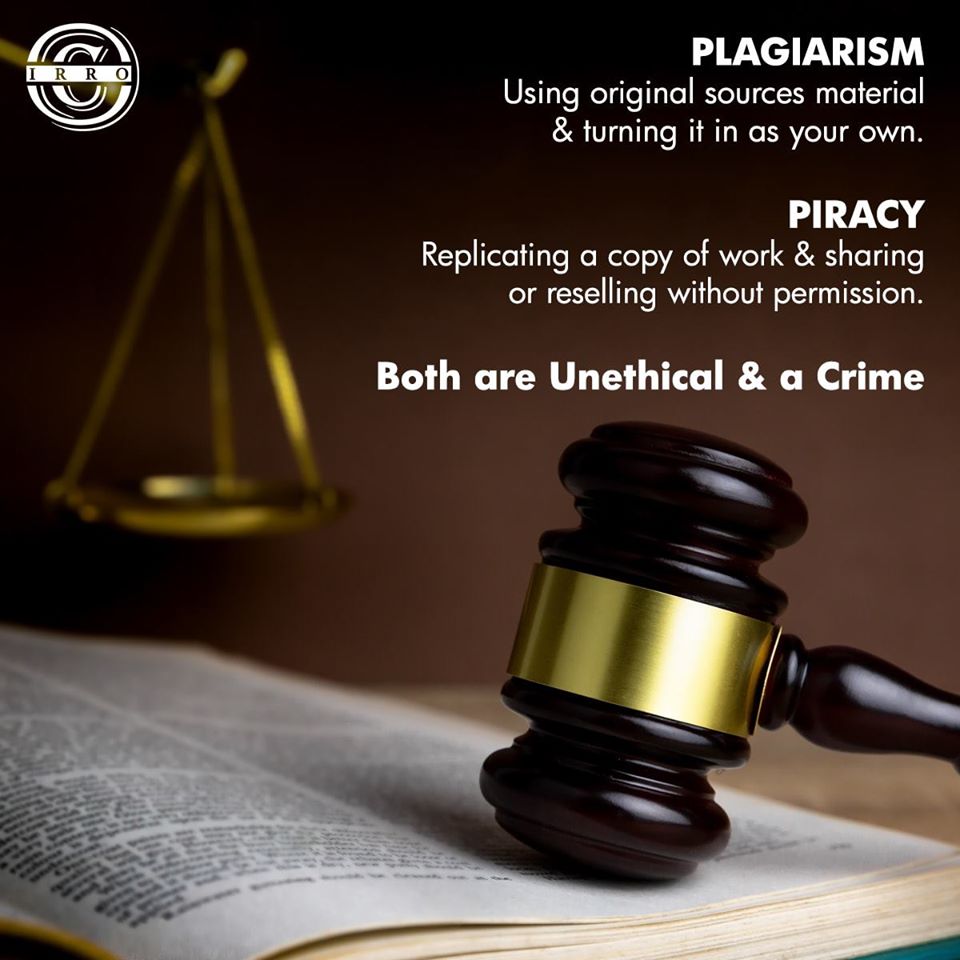Originality and Ethics in Publishing
A few days ago, IRRO organized a roundtable at Blue Hall, German Embassy, New Delhi. At the event, various matters of copyright were discussed. Inactive attendance were speakers representing the government of India, members of the legal fraternity, publishers, authors, and university students, addressing an audience representing both creators and consumers of literary works.
The primary issues discussed at the roundtable are as under:
- Copyright infringement
- Cyber piracy
- European policy update
While copyright infringement and cyberpiracy have both been a topic of discussion for quite a long time, amendments to Article 13 (EU Copyright Directive) have left everyone confused. Both creators and consumers are unsure of the benefits and damages if any.
However, the need to eliminate infringement and piracy was unanimously endorsed by one and all. After all, despite constant warnings, enforcement of rules and deliberation around infringement and piracy, not much has changed in the Indian publishing landscape.
When discussing the same, a major debate was around the ‘Right to Originality’ of authors and publishers, a term coined under the Copyright Act 1957. The phrase, a play on the other rights provided to us by the Constitution of India, lays emphasis on the need for all authors and publishers to have the right to their original content.
This includes not just ownership of something they’ve worked so hard upon, but also other rights like exclusivity, remuneration, stronger rules on copying and protection of content. While the Copyright Act 1957 provides these, there’s little to no clarity on how strict the rules are, what entails copying…and so on.

The roundtable also featured a discussion about ethical publishing and research behavior. In the past decade, India has made quite an improvement in contributing scholarly content to global research, currently accounting for about 88% of scholarly publications from South Asia. Although there has been a visible increase in the quantity of scholarly publications from India, the average quality of research output remains low.
Instances of research misconduct, including data fabrication, falsification, and plagiarism are aplenty. In such a scenario, there is a need for the Indian research community to focus on publishing ethics in its stride towards global recognition in research and innovation.
To simplify, the Association of Publishers in India (API) launched a guide to ‘Publishing Ethics’ in collaboration with other stakeholders, including the Federation of Indian Publishers (FIP), Indian Reprographic Rights Organisation (IRRO), German Book Office, and Federation of Indian Chambers of Commerce and Industry (FICCI).
Released on the occasion of World Book and Copyright Day, the booklet serves as a handy guide for ethical practices in reporting and publication of research.
Introducing the booklet, Nitasha Devasar, President, API said, “Publishing ethics concerns everyone: as readers, learners, researchers, and teachers everyone engages with the ethics of quoting, copying, authorship, and collaborative writing.” She added that the booklet will go a long way in answering this question for all stakeholders in the research and education ecosystem.
Researchers and their readers will benefit immensely from the booklet, which covers dos and don’ts of the research lifecycle; basics of authorship, data management and permissions; and issues related to copyright and common misconduct. It will also be beneficial to the wider academic community in highlighting the tenets of ethical research and supporting research and teaching institutions in shaping a sound research environment at par with international standards.
Here’s hoping to see more and more people choose the ethical way!
